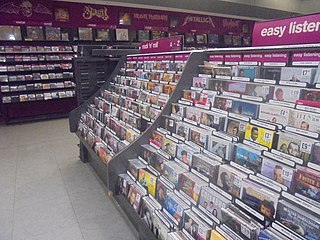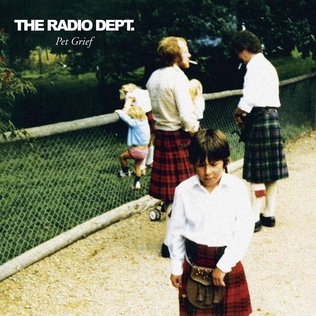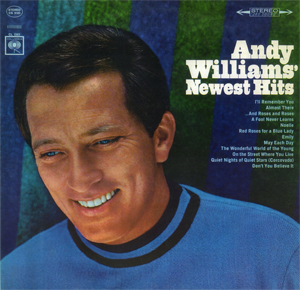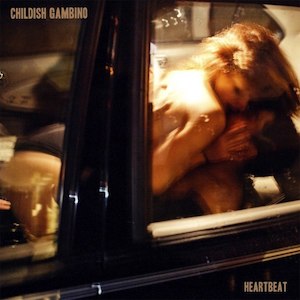Mood music is easy listening music.
Mood music may also refer to:
- Beautiful music
- Exotica
- Light music
- Lounge music
- Elevator music
- Music provided by Mood Media, Corporation
- Mood Music (play), a 2018 play by Joe Penhall
Mood music is easy listening music.
Mood music may also refer to:

Easy listening is a popular music genre and radio format that was most popular during the 1950s to 1970s. It is related to middle-of-the-road (MOR) music and encompasses instrumental recordings of standards, hit songs, non-rock vocals and instrumental covers of selected popular rock songs. It mostly concentrates on music that pre-dates the rock and roll era, characteristically on music from the 1940s and 1950s. It was differentiated from the mostly instrumental beautiful music format by its variety of styles, including a percentage of vocals, arrangements and tempos to fit various parts of the broadcast day.
Lounge may refer to:

Muzak is an American brand of background music played in retail stores and other public establishments. The name has been in use since 1934 and has been owned by various companies. In 1981, Westinghouse bought the company and ran it until selling it to the Fields Company of Chicago, publishers of the Chicago Sun-Times, on September 8, 1986. Formerly owned by Muzak Holdings, the brand was purchased in 2011 by Mood Media in a deal worth US$345 million. Muzak was based in various Seattle, Washington locations from 1986 to 1999, after which it moved its headquarters to South Carolina in 2000.

Ambient 1: Music for Airports is the sixth studio album by the English musician Brian Eno, released in 1978 by Polydor Records. It is the first of Eno's albums released under the label of ambient music, a genre of music intended to "induce calm and a space to think" while remaining "as ignorable as it is interesting". While not Eno's earliest entry in the style, it is credited with coining the term.
Background music is a mode of musical performance in which the music is not intended to be a primary focus of potential listeners, but its content, character, and volume level are deliberately chosen to affect behavioral and emotional responses in humans such as concentration, relaxation, distraction, and excitement. Listeners are uniquely subject to background music with no control over its volume and content. The range of responses created are of great variety, and even opposite, depending on numerous factors such as, setting, culture, audience, and even time of day.
The Mozart effect is the theory that listening to the music of Mozart may temporarily boost scores on one portion of an IQ test. Popular science versions of the theory make the claim that "listening to Mozart makes you smarter" or that early childhood exposure to classical music has a beneficial effect on mental development.
"Ev'ry Time We Say Goodbye" is a popular jazz song with lyrics and music by Cole Porter. Part of the Great American Songbook, it was published by Chappell & Company and introduced by Nan Wynn and Jere McMahon in 1944 in Billy Rose's musical revue Seven Lively Arts.
Chill-out is a loosely defined form of popular music characterized by slow tempos and relaxed moods. The definition of "chill-out music" has evolved throughout the decades, and generally refers to anything that might be identified as a modern type of easy listening.
The Adult Contemporary chart is published weekly by Billboard magazine and lists the most popular songs on adult contemporary radio stations in the United States. The chart is compiled based on airplay data submitted to Billboard by stations that are members of the Adult Contemporary radio panel. The chart debuted in Billboard magazine on July 17, 1961. Over the years, the chart has gone under a series of name changes, being called Easy Listening(1961–1962; 1965–1979), Middle-Road Singles(1962–1964), Pop-Standard Singles(1964–1965), Hot Adult Contemporary Tracks(1979–1982) and Adult Contemporary(1983–present).
Mood may refer to:

Light music is a less-serious form of Western classical music, which originated in the 18th and 19th centuries and continues today. Its heyday was in the mid‑20th century. The style is through-composed, usually shorter orchestral pieces and suites designed to appeal to a wider context and audience than more sophisticated forms such as the concerto, the symphony and the opera.

Pet Grief is the second studio album by Swedish dream pop band The Radio Dept., released on 12 April 2006 through Labrador Records.
Space age pop is a subgenre of pop and easy listening music associated with Mexican and American composers and songwriters in the Space Age of the 1950s and 1960s. Also known as bachelor pad music or lounge music, it was inspired by the spirit of those times, an optimism based on the strong post-war economy and technology boom, and excitement about humanity's early forays into space. Although there is no exact album, date, or year when the genre was born, producer Irwin Chusid identifies its heyday as "roughly 1954 to 1963—from the dawn of high-fidelity (hi-fi) to the arrival of the Beatles."

"Love Theme from The Godfather" is an instrumental theme from the 1972 film The Godfather, composed by Nino Rota. The piece was lyricized in English by Larry Kusik into "Speak Softly, Love", a popular song released in 1972. The highest-charting rendition of either version was by vocalist Andy Williams, who took "Speak Softly Love" to number 34 on Billboard magazine's Hot 100 and number seven on its Easy Listening chart.
Horst Jankowski was a classically trained German pianist, most famous for his internationally successful easy listening music.
Good Music may refer to:

The Day Is Brave is the debut studio album by American singer-songwriter Brendan James. It was released on June 3, 2008. The album is an extension of his previous four-song EP The Ballroom Break In which released in 2007.

Andy Williams' Newest Hits is a compilation album by American pop singer Andy Williams that was released early in 1966 by Columbia Records and was the first LP to compile the singer's Columbia material. Seven of the 12 tracks had reached the charts in Billboard magazine, and another had been released as a single in the UK. Three album cuts were also included along with a recent B-side.

"Heartbeat" is a song by American rapper Childish Gambino. It was released on November 15, 2011, by Glassnote Records as the second single from his debut studio album, Camp (2011). The song was written and produced by Gambino himself along with Ludwig Göransson.
Easy listening is a popular music genre and radio format.